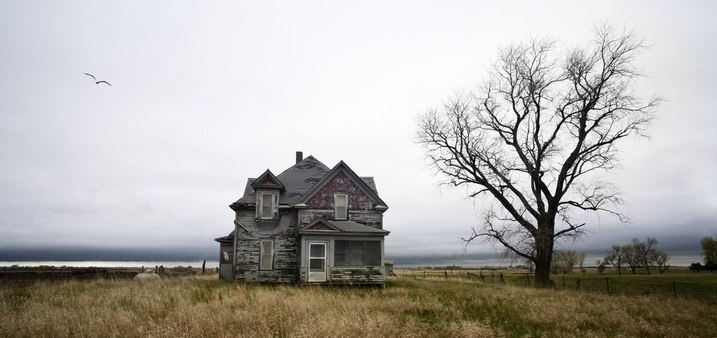The United States has thousands of laws to govern your daily life. But can we also regulate the supernatural?
In fact, in addition to informing a prospective buyer that your house is haunted, in some states, you need a license to practice necromancy or to be reincarnated. Plus, if you have plans to file a lawsuit against a supernatural being, keep reading.
You may be interested to know that many states around the country attempt to control the spirit world through legislation.
Disclosure Laws
Every state regulates the sale of homes. Part of the mountain of paperwork involved in such transactions is the property disclosure statement. The law states that the seller must inform the buyer of any material defects or other important information. This can include whether the house sits in a flood plain, the roof leaks, it has termites, or if the property was ever used as a meth lab.
The disclosure laws in this area center on whether an unnatural death or suicide is a material fact. Some states say yes, you’d have disclose if someone was killed on the property. This brings us to the next question, of course, which is, Is the person’s spirit still inhabiting the home?
California law requires disclosure of a death and the manner of death if it within the past three years. But in Massachusetts, the fact or suspicion that a property may be or is “psychologically impacted” isn’t a material fact that has to be disclosed in a real estate transaction. The definition of “psychologically impacted” includes that “the real property has been the site of an alleged parapsychological or supernatural phenomenon.” As a result, you can’t sue your Boston listing agent or the sellers because Beetlejuice is bunking in the master suite. Missouri feels the same way.
Other states also have a supernatural “Don’t Ask, Don’t Tell” laws on the books. Mississippi, Florida, Texas, Maryland, and Georgia all say that a seller and/or his or her agent is not liable and doesn’t have to disclose a death on the property. It follows then, that they also have no obligation to disclose the presence of spirits.
“Stigma”
Another way to classify the property is by stating that there is a “stigma” attached or associated with the property. Usually the term means that there was an unnatural death on the premises, that it was used as a brothel, or that it was featured in the filming of Breaking Bad (which has generated increased traffic from fans). In addition, some have claimed that perceived paranormal activity is a sign of a possible air quality hazard, like carbon monoxide or toxic mold.
However, the Pennsylvania Supreme Court has held that purely psychological stigmas are not material defects of property that sellers are required to disclose to buyers; thus failure to disclose this to the home buyer doesn’t not constitute fraud, negligent misrepresentation, or an unfair business violation of 73 Penn. Stat. § 201-2(4)(xxi).
Similarly, the Arizona Court of Appeals found that Arizona stigmatized property nondisclosures do not protect against affirmative misrepresentations. So, in the Grand Canyon State, if asked if the place is haunted, you can’t lie about it. All the sellers can do is decline to answer the question (which would be a dead giveaway! “Is this house haunted?” I refuse to answer.). The state’s stigmatized property law would protect a seller from having to disclose this. That’s some comfort, but those inquisitive buyers probably aren’t making an offer.
Other Creepy Rules
In New Orleans, a city where the practice of Voodoo is still going on, the business of fortunetelling (chronology, phrenology, astrology, palmistry), telling or pretending to tell fortunes, either with cards, hands, water, letters or other methods is unlawful. But this doesn’t apply to medical science or to “any religious worship.” But Louisiana Voodoo is “a set of spiritual beliefs and practices developed from the traditions of the African diaspora in Louisiana.”
It definitely is okay in San Francisco, where you need only obtain a fortunetelling permit. This permit from the police department also allows you to practice necromancy— communicating beyond the grave through reanimation of dead flesh. The permit also is good for removing curses mediumship, seership, prophecy, augury, astrology, and palmistry, so it’s a really valuable permit to have. And even if you can’t actually talk to a dead person, the permit covers pretending to perform these acts of sorcery or black magic.
Ghosts are people too, so make sure you understand the laws in your state concerning home disclosures and “psychologically impacted” property. Make sure you know if your state classifies the Amityville Horror’s evil possession as a material fact.
Like so many questions in the law, it depends.
Read more: 13 spooky Hal-LAW-een cases>>









